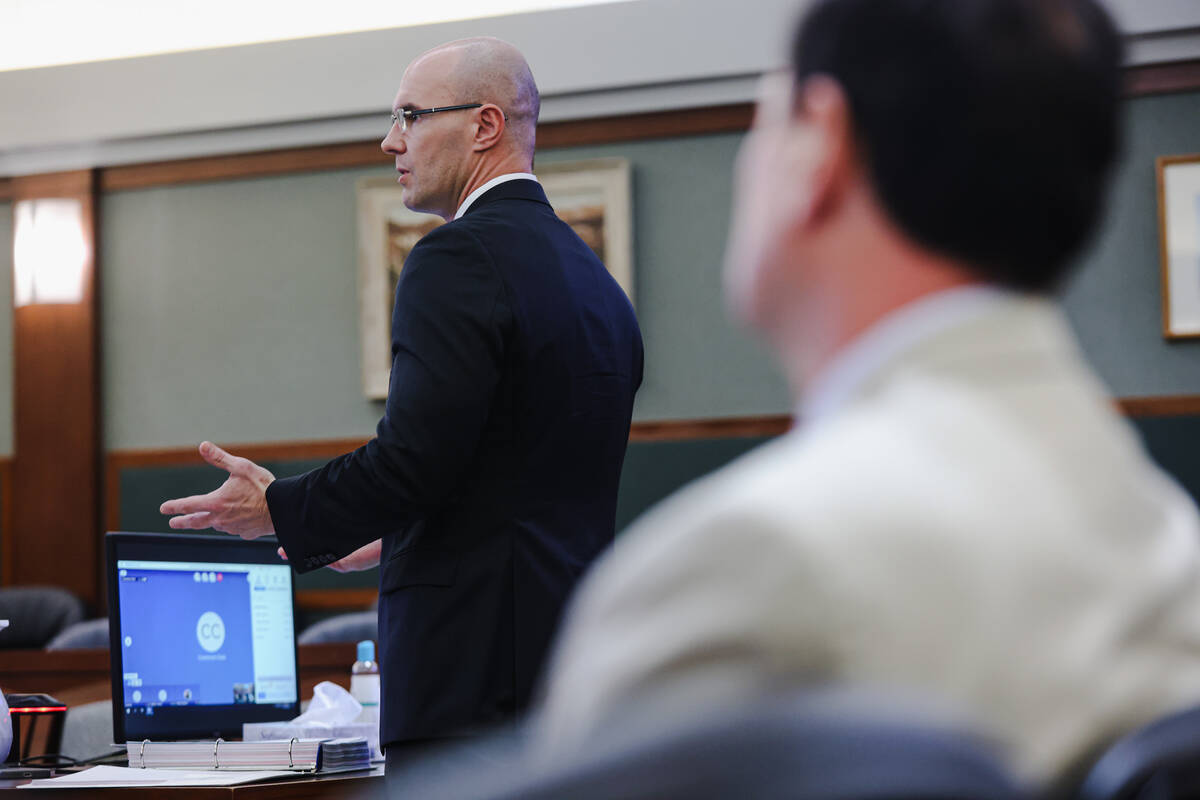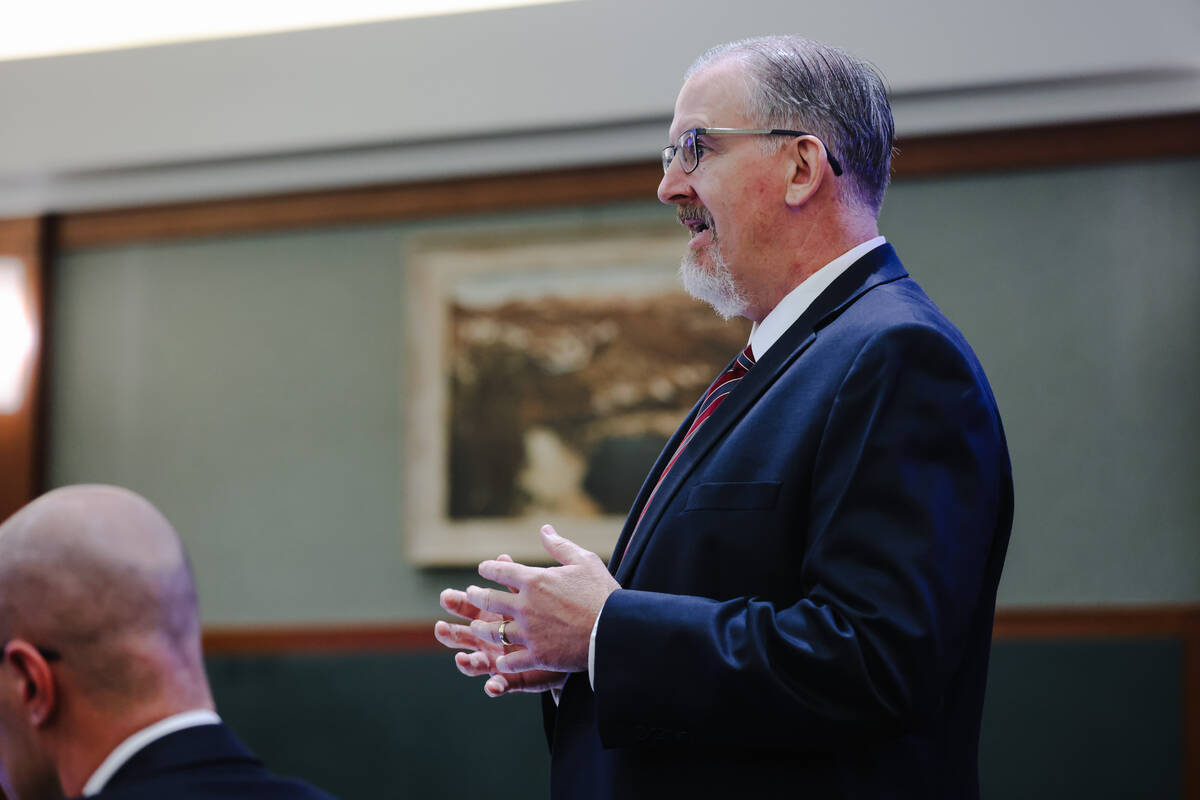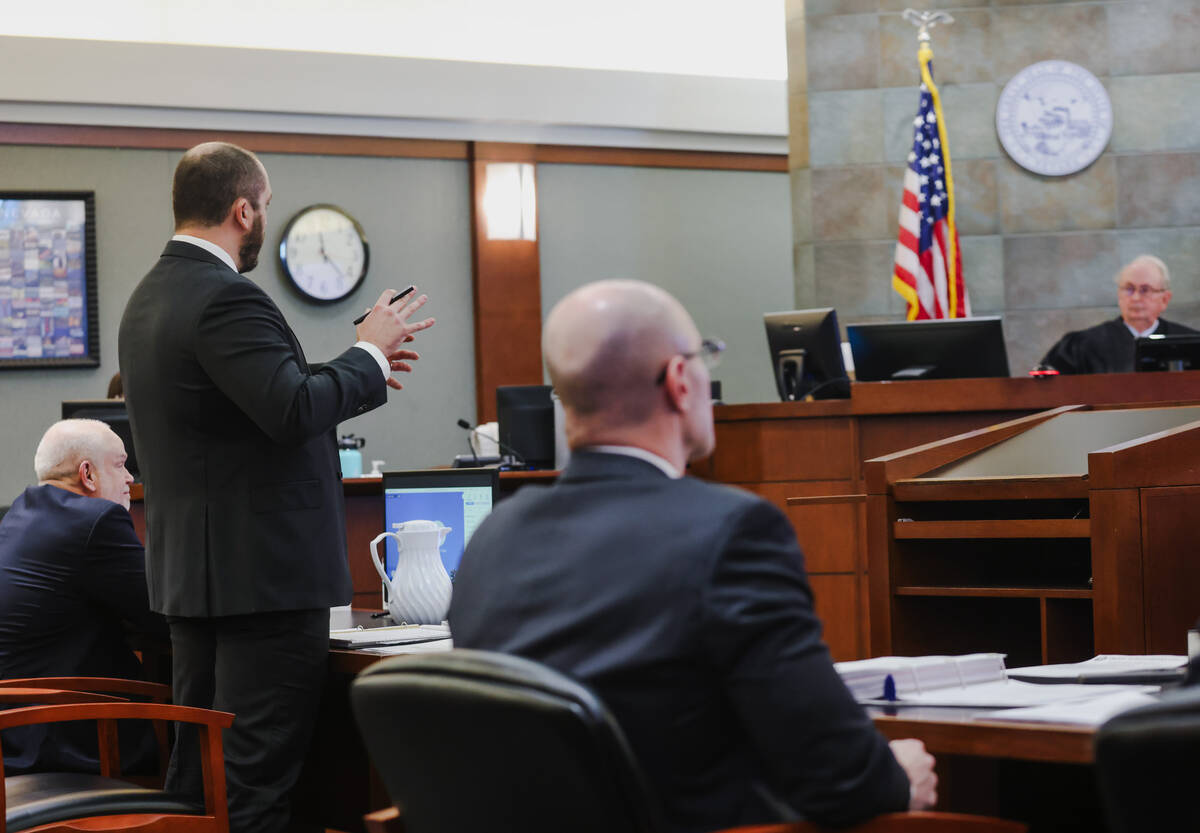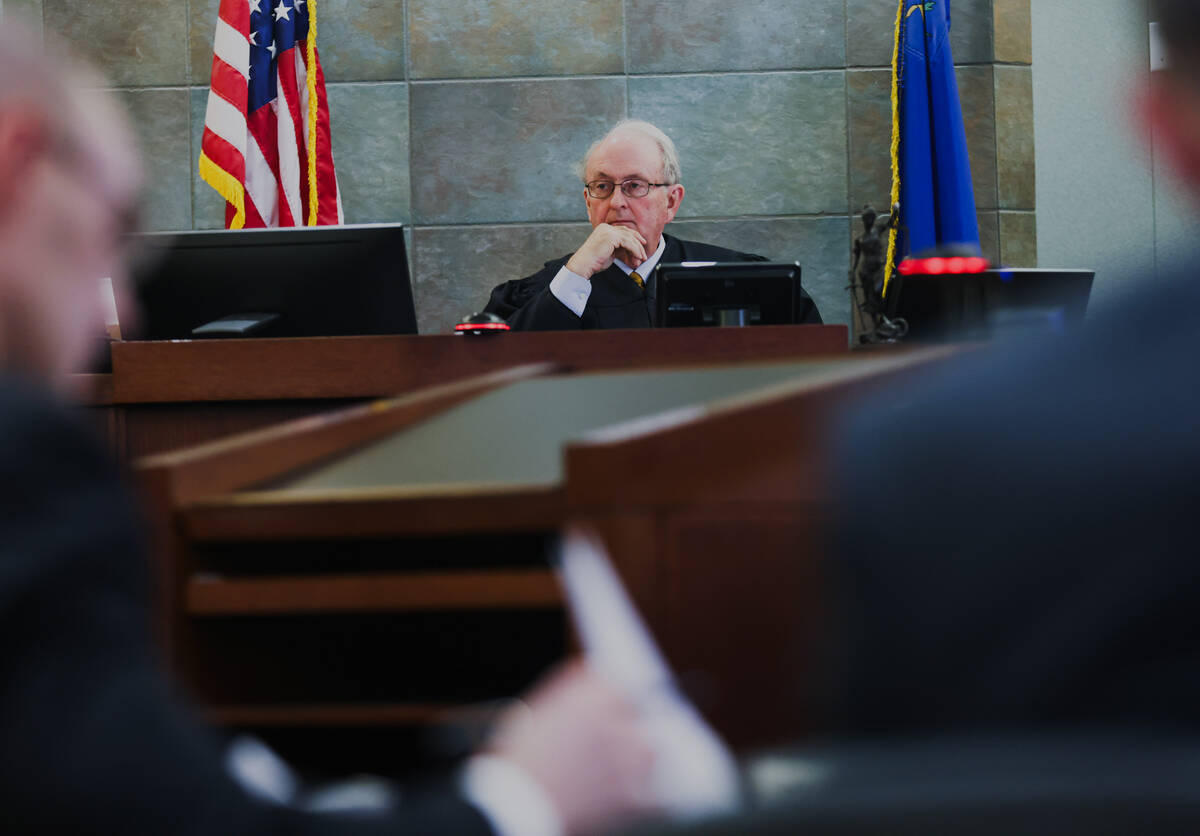Judge sides with RJ in legal battle over police video
A judge ruled Monday that the Las Vegas Review-Journal does not have to take down or alter its video of Henderson corrections officers that was published as part of an investigation into excessive overtime and mistakes at the city jail.
“I’m not persuaded that injunctive relief is warranted,” said District Judge Mark Denton, who denied the police union’s demand for an injunction against the newspaper that would require it remove or modify the video.
The judge’s ruling pertained to the newspaper’s report last month that revealed taxpayers have paid millions of dollars in overtime to run the city’s understaffed detention center and that corrections officers sometimes made mistakes and violated policy, records show. Exclusive jail surveillance footage and photos were posted with the story.
After the Review-Journal ran its story, the Nevada Association of Public Safety Officers sued the newspaper, claiming it broke a state law that says images of officers in the possession of a law enforcement agency are confidential. The city of Henderson has joined the lawsuit and launched an investigation into how the newspaper obtained the video.
“Today’s ruling was affirmation that press freedoms are enshrined in the First Amendment for an important reason: The government and public employees can’t tell the media what to publish and not publish,” Review-Journal Executive Editor Glenn Cook said after the ruling.
The Review-Journal’s chief legal officer, Benjamin Lipman, said the statute only forbids law enforcement agencies from publishing the photos — not media outlets.
The judge still has to decide whether NAPSO and Henderson have legal standing to pursue the case at all. If they do, Denton will decide whether the law applies to the general public, including media, rather than just law enforcement agencies. If that is the case, he will also have to rule on whether it is unconstitutional to apply the law to a news organization, or any member of the public, that publishes lawfully obtained information, Lipman said.
Union may appeal decision
NAPSO executive director Andrew Regenbaum said the judge got it wrong and that the union would consider appealing his decision.
“It’s, unfortunately, shameful that the paper continues to try and turn this into a First Amendment argument when it’s not,” he said. “Nobody has asked you to change your article.”
The union argues that keeping the video up without blurring officers’ faces puts their safety at risk but could provide no evidence of that either in court or in phone interviews.
“We don’t need to establish a threat or somebody acted on the threat to establish irreparable harm,” said Las Vegas attorney William Schuller, who represents the union. “Each time the video and or photographs are published in another article, the chances of that happening increase.”
Attorney Matthew Cate, arguing on behalf of the Review-Journal, said these officers are in the public every day and do not work undercover. He also argued that the Review-Journal did nothing but receive information and publish it.
“The First Amendment does not require the newspaper to rely on the government to provide information,” he said.
Henderson city officials sent the Review-Journal redacted video to use after the story ran, but the newspaper has declined to alter or replace its published work as the video is important to exposing potential wrongdoing by taxpayer-paid officials. The video was obtained from a source.
During Monday’s hearing, Assistant City Attorney Wade Gochnour said the parties are not infringing on the newspaper’s rights, adding that publishing the face of the officers is not in the public interest.
Earlier this month, Denton denied the union’s demand that the Review-Journal immediately take down the video.
Contact Briana Erickson at berickson@reviewjournal.com or 702-387-5244. Follow @ByBrianaE on X. Erickson is a member of the Review-Journal’s investigative team, focusing on reporting that holds leaders and agencies accountable and exposes wrongdoing.


























